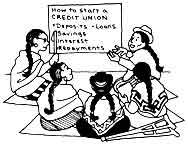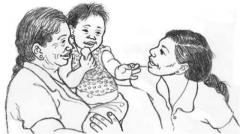Your progress
0%
Non-formal education expresses the core principles that should be at the heart of all good education. Non-formal education is all of the following:
To learn more, use your mouse or keyboard to expand each of the barriers listed below.

Non-formal education should be relevant to the learner’s life and the needs of society, at the time of education and in the future. Non-formal education can be more relevant to the needs of communities and draw on local resources and personnel by involving others in deciding the content of what is taught.
Non-formal education should be flexible in what is taught and how it is taught, and to the needs of the different learners. Learners may include adults and children who work, live on the street, are sick, are in prison, have a disability or are victims of conflict or emergency.
Learning should also be flexible in the methodologies used for teaching.
Non-formal education should be participatory. Learners should be active participants in their learning, and they and their families and communities should be involved in running the non-formal education programme.
Non-formal education should be inclusive of all children regardless of background or ability, respecting and using the differences between them as a resource for teaching and learning. Non-formal education often targets marginalized groups, such as nomadic communities, girls, people with disabilities, school dropouts and working children.
Non-formal education programmes have the potential to be of high quality, because they can respond more easily to the needs of individuals and specific groups in the community. Because of their potential for high quality, non-formal programmes can even serve to encourage broader action for inclusion in the rest of the community.
Learn how CBR success in facilitating an after-school school programme gave the local district an incentive to work with them to facilitate inclusion.


CBR personnel in El Porvenir, Honduras, provided afterschool tutoring for children with and without disabilities who were in danger of failing 1st grade. At the end of the school year, the children passed their exams. The District reported that the school’s repetition rate for the year had dropped by 75%. This drop in repetition provided an incentive for the district to work with CBR and include children with disabilities in non-formal schools.